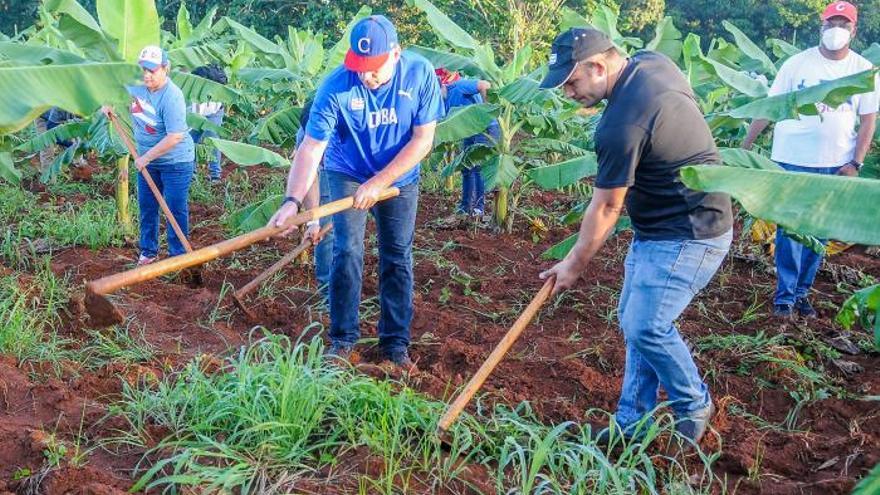
![]() 14ymedio, Havana, 11 July 2022 — The official Cuban press has also made an 11J [July 11th] “special.” It is a series of opinion and analysis pieces, including an editorial, dated this Monday to talk about what it calls a “soft coup.” The roll-out began this Sunday, with a conference dedicated to young people, supporters of the Government. “We have full confidence in the Cuban youth, and we feel the shows of support every day in the fight against the media war and the active participation in the development of the country,” said Miguel Díaz-Canel.
14ymedio, Havana, 11 July 2022 — The official Cuban press has also made an 11J [July 11th] “special.” It is a series of opinion and analysis pieces, including an editorial, dated this Monday to talk about what it calls a “soft coup.” The roll-out began this Sunday, with a conference dedicated to young people, supporters of the Government. “We have full confidence in the Cuban youth, and we feel the shows of support every day in the fight against the media war and the active participation in the development of the country,” said Miguel Díaz-Canel.
The president, guataca [hoe] in hand, appeared at an agricultural farm in Bauta, Artemisa, to participate in “voluntary work” and talk about the demonstrations of a year ago. The demonstrators were, for the most part, young people, many of them today in prison, many others in exile, and the few that remain, warned so that today they do not think of repeating the feat.
“I want to remind you that it is true that (on July 11) we experienced unpleasant events, which we do not want to happen in our country. There were acts of vandalism, some with cruelty and with tremendous vulgarity and aggressiveness,” Diaz-Canel said.
However, the president celebrated that day that “the people took to the streets to defend the Revolution, the young people took to the streets to defend the Revolution, and in less than 24 hours, in much less than 24 hours, there were no more disturbances and the acts of vandalism and totally denigrating crimes against facilities, against people, had been extinguished.
Surprisingly, the leader decided to appropriate the spirit of 11J stating that “if there is something to celebrate this Monday, it is the victory of the Cuban people, of the Cuban Revolution, in the face of the attempts of those who wanted to turn (that) into a soft coup.”
The message plays in the editorial this Monday in the official newspaper Granma, entitled Un Girón en Julio*, although it contradicts a certain tone with Díaz-Canel. The president gave a long dissertation in Bauta on how love is always in the essence of Cubans and the Revolution loves love. Amid so much sweetness, he identified the J11 (July 11th) protesters and those who supported them with hate and evil. “Now, from the call they make, they are also calling for ruptures from positions of vandalism, from positions of events against citizen stability, against the stability of life in the country.”
In its editorial, the Cuban Communist Party’s newspaper, however, contemplates July 11 as one of the many battles that, according to the text, the Revolution has faced since its birth and against which it emerged victorious. “Because the dangers are true,” it says, “it is that the Cuban people have always been in the throes of combat. This was demonstrated on July 11, when they crushed that skirmish in a few hours,” it says, without being very clear if, finally, the prevailing belief is that the demonstrations were a serious coup attempt or an insignificant disturbance.
The newspaper also believes that there is an interest in “generating the false idea that material shortages and difficulties respond to inefficiency in the management of the revolutionary government, and to cover up its real cause: the inhumane economic siege of the United States.”
For its part, the official website Cubadebate opens full page with an analysis in which several specialists participate to address the “skirmish” or “soft coup.” In it, reference is made to how the complicated circumstances that Cuba was going through a year ago — and which now are far from having improved — were used to “intoxicate” and “thus generate citizen mobilization in the street.”
There is also space on the web for Reinaldo Rosado Roselló, responsible for logistics at the University of Informatics Sciences, who suffered a wound to the forehead on July 11 and has become a preferred witness of the ruling party, which uses him as a victim of “violent” protests.
There is no mention of Diubis Laurencio Tejeda, killed by a police shot. Nor to the hundreds of detainees, many of them sentenced to more than twenty years, nor to the combat order of Miguel Díaz-Canel to take to the streets to defend the system, with weapons if necessary.
*Translator’s note: Un Girón en julio — A Girón in July — references what the US calls the ’Bay of Pigs.’
____________
COLLABORATE WITH OUR WORK: The 14ymedio team is committed to practicing serious journalism that reflects Cuba’s reality in all its depth. Thank you for joining us on this long journey. We invite you to continue supporting us by becoming a member of 14ymedio now. Together we can continue transforming journalism in Cuba.
